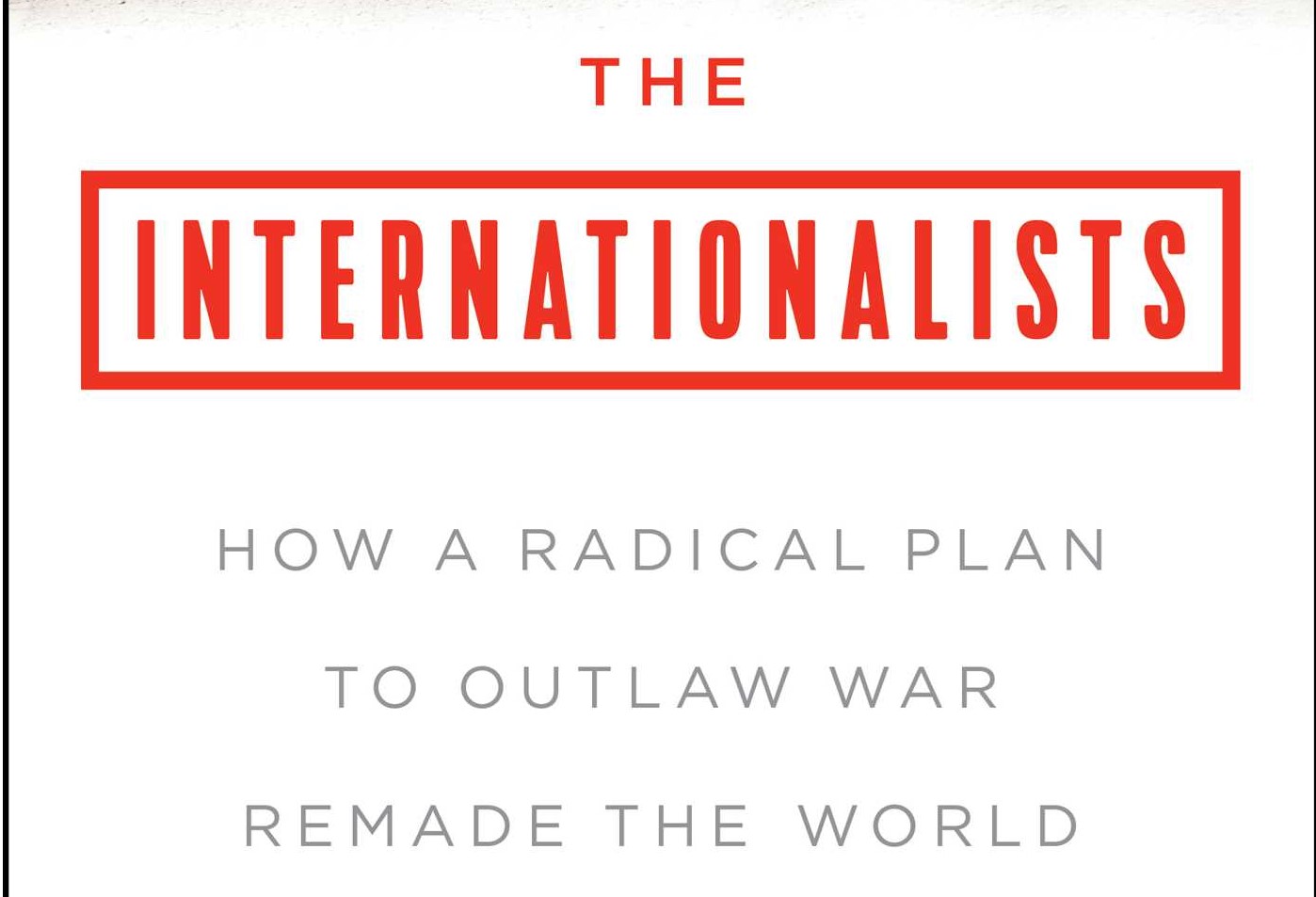Reading Room: The Internationalists

Did the Pact of Paris of 1928 successfully outlaw war? Many historians have argued to the contrary but this engagingly written and thought-provoking book seeks to establish that it did.
Immediately prior to the Great War, Norman Angell (in The Great Illusion and Foundations of International Polity) was the first to conceptualise the interdependence of nations, its consequences for international society and especially for warfare. During that war, the Union of Democratic Control campaigned to ensure that foreign policy would no longer be conducted without parliamentary scrutiny.
Leonard Woolf, H G Wells, G Lowes Dickinson and others then investigated the conditions that would have to be fulfilled if global governance was to supplant the contention of competing nations and realise the potential of interdependence. Nor was this an activity restricted to intellectuals; J C Smuts and Lord Robert Cecil played a large part in the institutional design that led to the creation of the League of Nations.
Though these ideas did not entirely triumph, it can be claimed that thereafter the world entered an era in which state power could not be exercised without regard to the effects on other nations and populations.
This period was also characterised by the appearance of enduring multilateral and international institutions which adapted themselves to the roles previously discharged by ad hoc coalitions or by sovereign governments themselves. A book with the this title might be expected to begin with or to at least to acknowledge, the role of these figures and the movements in which they worked; none of them appear.
The focus of the book, rather, is on the change wrought in international society by the Kellogg-Briand Pact, otherwise known as the Pact of Paris, which renounced warfare as an instrument of national policy and declared that all conflicts between signatories would be settled by peaceful means. While the treaty did not state the sentiment explicitly, the proposition that states that resorted to war engaged in illegal and illegitimate conduct was openly affirmed.
Beginning as an agreement between the United States and France, the 15 original adherents in 1929 included all the major powers (as well as Australia); thereafter, many other states joined the treaty regime and, in international law, it still remains in force.
In sum, the ‘internationalists’ of the book are the proponents of the Kellogg-Briand measure. There are some very brief acknowledgements made to predecessors—Kant and Rousseau receive honourable mentions—but the main actors are Americans and the most important of these is James T Shotwell. Shotwell was an exceptional figure, commanding an enormous breadth of knowledge and ceaselessly active in the struggle for peace. He was on Woodrow Wilson’s staff in Paris in 1919 and was still at work—including on the plans that became the Charter of the United Nations—his optimism undiminished, decades later. In the book, he is joined by Under Secretary of State, Sumner Welles, Salmon O Levinson (author of the Plan to Outlaw War of 1919) and legal theorist Hans Kelsen as well as secretaries of state Henry Stimson and, of course, Frank Kellogg.
While Americans were no doubt prominent in the formation of the United Nations, the idea of a ‘league of nations’, including the phrase itself, was undoubtedly explored and debated by the British and then the French and especially by those figures mentioned here at the outset. However, because the authors wish to interpret the League as a ‘reprieve’ for the old world order, which they understand as having been overturned only in 1928, this narrative is rejected. Moreover, the continuity they wish to highlight is between the norms expressed in the Pact and the emergence of the United Nations; this continuity is to be attributed to American efforts.
The ‘internationalists’ are thus contrasted with the ‘interventionists’ of the era the Pact supplanted, with Grotius and the laws of war he codified representing an era in which, within very generous limits, the law of nations recognised and accepted the practice of warfare and legitimised its spoils. In their legal terminology, war-making involved the assertion of a ‘right’.
Though the authors are persuasive, there are some apparent missteps in the argument. Having established that Kellogg-Briand could have been (in their view, should have been) the basis for the charges brought against the Nazi leadership at the Nuremburg trials, they find the failure of the prosecution consistently to take this step ‘shocking’. A better historical judgement would have been to seek to understand better why this road remained untraversed. Moreover, the account of the Crimean War will puzzle historians.
This is a very American book but, being produced by legal academics, it is also largely innocent of social science. The correlates of war data that they employ show that the incidence of warfare has declined since the Pact of Paris. However, there is a very extensive literature in the social sciences on the reasons for that decline. One prominent hypothesis is that the invention of nuclear weapons rendered warfare so much costlier, not only for the combatants but even for the species, that calculations by leaders regarding the dangers of war entered new and much more forbidding terrain. Without systematically considering alternative hypotheses, we have no way of knowing whether the Pact of Paris was causative or coincidental in this trend.
Nevertheless, even if the work’s chief contention is overstated, the book is engagingly written and develops a very strong case for taking history seriously as a means to understand the contemporary environment in which policy must be made. The first article of the ANZUS Treaty, which affirms the duty of the signatories to settle disputes peacefully and abjure threats of force, cannot be conceived without it. It is to be regretted that President Trump is apparently ignorant of that article and is also never likely to open the pages of this work.
Oona A. Hathaway and Scott J. Shapiro (2017). The Internationalists: How a Radical Plan to Outlaw War Remade the World. London: Allen Lane Random House, 2017.
James Cotton FAIIA is Emeritus Professor at the University of New South Wales Canberra, ADFA. He is a fellow of the Australian Institute of International Affairs.





